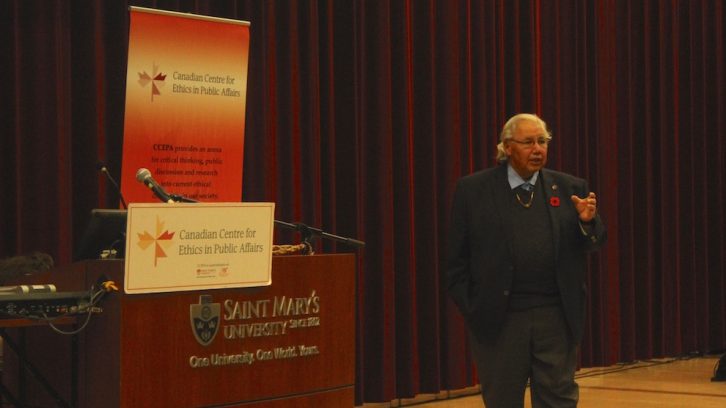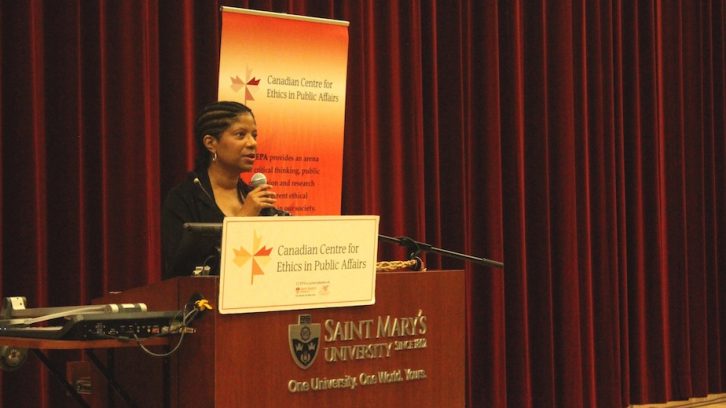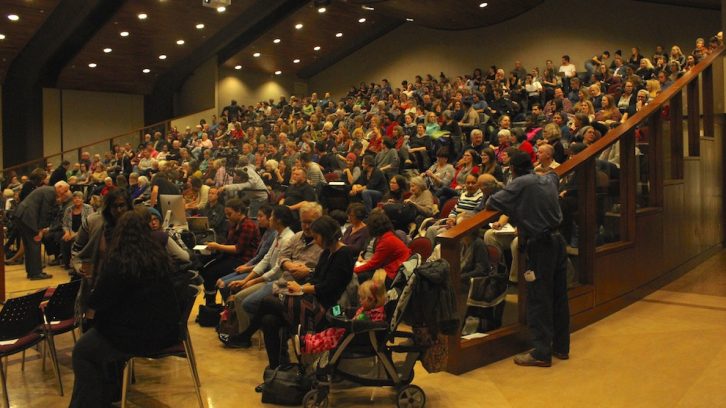Canadian Issues
SMU auditorium full to hear Indigenous perspectives on racism
Senator Sinclair caps off speaker series

caption
Senator Murray Sinclair addressed a large crowd at SMU on Wednesday.
caption
Sen. Murray Sinclair addresses a large crowd at SMU.Haligonians came together Wednesday night to address a topic rarely spoken about so blatantly: racism.
Sen. Murray Sinclair, the former chair of the Truth and Reconciliation Commission of Canada, drew a crowd of about 500 people to Saint Mary’s University’s McNally Theatre Auditorium. His talk was the fourth and final session in a speaker series on different perspectives on racism.
Sinclair spoke about Indigenous perspectives on racism and covered topics like residential schools, preserving Indigenous traditions, a lack of education about Indigenous issues and the mental health effects of growing up Indigenous in Canada. Related stories
“I was well aware about what the public school was teaching us about us,” he said, recalling his time as a student in Manitoba. “We had to be willing to recite back to teachers what they were telling us.”
For Sinclair, the impact of the residential school system continues today.
“We have become our own worst oppressors,” he said, noting that parents try to protect their children and “save their lives” by refusing to teach them Indigenous languages that were almost eliminated by residential schools.
The series was organized by the Canadian Centre for Ethics in Public Affairs (CCEPA) and the ENRICH project. Dr. Ingrid Waldron, an associate professor in the School of Nursing at Dalhousie University, is the director of ENRICH and studies environmental racism in Nova Scotia.

caption
Dr. Ingrid Waldron thanks Sinclair and attendees for the series’ success.She says the main goal of the series is to address the “elephant in the room,” because although many community issues stem from racism, the surrounding discussion often ignores key problems.
“Usually we talk about racism as it underlies other issues,” Waldron said in an interview before the event. “I often go to talks about poverty or talks about gender and I feel that the issue of racism is underneath and not discussed.”
The previous three talks — which took place last spring — covered white, black and immigrant perspectives. They took the form of panel discussions with academics, activists and health professionals.
After speaking, Sinclair took questions from the audience and online, where the talk was shown live.
Dylan Letendre, a recent Dalhousie graduate whose family is Métis, says Sinclair’s talk resonated with him.

caption
A large crowd came out to hear the talk on racism at SMU.“As he was talking about his experience going to provincial schools and being taught what he was taught about who we are, it made me remember all those similar experiences,” said Letendre.
“Whether you’re Indigenous or non-Indigenous, everybody has memories of what you learned about Indigenous culture growing up and we can recognize how wrong it is.”
Sinclair’s talk also addressed taking action within the community, something Ph.D. student Sarah Faber says was her biggest take away.
“(We) just (need to) keep hassling the people that need to be hassled, keep engaging with government at the municipal, provincial and national level,” said Faber. “Be a little more vocal with friends and family about it, be that loud person at the dinner table for however long it takes — or until they stop inviting you.”
About the author

Victoria Walton
A 4th year journalism (BJH) student at the University of King's College, Halifax. Combined honours with International Development Studies. Interested...